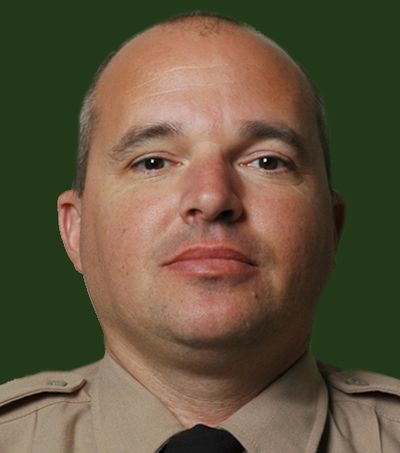When police issue order, only legal choice is to comply

Although the Constitution gives citizens the right to bear arms, state laws passed since then dictate how citizens can legally carry and use weapons.
Spokane County Prosecutor Steve Tucker and other legal experts say the law is crystal clear on this point: a person must follow a lawful order from police.
“When an officer asks you to drop a weapon, you drop it,” Tucker said this week. “Even in the old West, if a deputy sheriff comes up on an outlaw and says ‘drop the gun,’ you drop the gun or a gun battle starts.”
But Alan Creach, son of Wayne Scott Creach, who was killed Aug. 25, said it’s also clear that his father was no “outlaw,” and was well within his rights to carry a gun to protect his property as he had done for years.
“The reality is, by law, you have to obey legitimate or legal law enforcement instructions,” Creach said. He said he believes Tucker’s statement is “biased,” and wondered how “an elected official who has been charged with protecting the interests of citizens who have been harmed would come out with such a statement.”
Jeffry Finer, who is representing the estate of Otto Zehm — the mentally ill janitor who died as a result of a 2006 confrontation with Spokane Police — said Tucker’s statement captures the Washington Supreme Court’s current view of case law.
“You’ve got two guys with weapons who are edgy for their own reasons. It’s very difficult to know what was said and what was heard,” Finer said. “But the obligation is to always follow an officer’s lawful order. So the order, if lawful, has to be followed.”
According to Deputy Brian Hirzel’s statement to investigators, the deputy parked his unmarked patrol car in the gravel lot of Creach’s business, the Plant Farm, at 14208 E. Fourth Ave. The Spokane Valley Police officer said he was there for a prowl check call made by a neighbor and didn’t know that Creach lived in the house adjacent to the parking lot.
Hirzel said he was writing up a collision report at about 11:07 p.m. when he saw the shirtless Creach approaching with a gun in his right hand and a flashlight in his left. Though no witnesses heard him, Hirzel said he ordered Creach five or six times to drop the gun. He said Creach replied that he didn’t have to and instead put the .45 caliber, semi-automatic pistol in his back waistband.
Hirzel said he ordered Creach to the ground, but the older man refused, and the deputy struck Creach in the leg with his baton using a backhand swing. Hirzel said Creach, 74, reached for his gun and Hirzel fired when he saw the butt of the weapon.
But medical and forensic tests could find no sign of Hirzel’s baton strike, according to the investigative report released Thursday.
Finer believes Hirzel’s use of the baton might muddy the legal waters somewhat, although another legal expert disagrees.
Finer said case law backed Hirzel in ordering Creach to drop the weapon. But that legal burden may have shifted back to Creach if the baton use is later deemed excessive force.
“These things happen rapidly. At one point the officer gives a reasonable order that has to be complied with. But if the officer follows that up with unreasonable use of force, then it shifts back to the person or detainee who then has the right to defend himself,” Finer said. “You don’t have the right to fight with an officer. But you do have the right to protect yourself from an officer using unreasonable force.”
But John Strait, a professor of legal ethics at Seattle University School of Law, said Finer is “flat wrong.”
“You don’t have the right of self-defense under that case even if the police officer is completely illegal and using way excessive force,” Strait said.
Strait said the case law governing police confrontations came out of a case back in the 1920s that gave citizens the right to resist unlawful arrest. But the Washington Supreme Court modified that ruling in the 1980s, giving detainees very little leeway.
“Even if you are unlawfully being arrested, you don’t have the right to use force against a cop,” he said.
The legal burden doesn’t change whether the encounter occurs on public or private property, Strait said.
One detective interviewing Hirzel asked the deputy what would have happened had Creach put his pistol on the ground, according to the investigative file.
“Nothing,” Hirzel replied. Had Creach put down the gun and explained that it was his property, Hirzel said he would have apologized to the pastor and warned him, “next time don’t come up on a cop with a gun.” He added, “We wouldn’t be here today.”